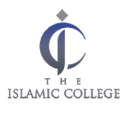ML401 – Sources of Islamic knowledge
Course Overview
This module presents an in-depth study to the two fundamental sources of Islam. It aims to analyse the overall structure, content and style of the Qur’an and Hadīth according to classical and modern approaches and their function in Muslim religious and cultural life. It provides the theoretical framework to critically analyse Islamic exegetical traditions, tracing their development and demonstrating the variety of ways in which Muslims have approached and understood the Qur’an and Hadīth.
Module Info
- Syllabus
- Strategy
- Material
sYLLABUS
The first part of the course examines the earliest forms of Qur’anic scholarship including the compilation of the Qur’an and its integrity, the significance of the role of reciters (qurra’). Further, different exegetical schools, classical and moderns, developed by Muslims will be critically examined providing an opportunity for the students to analyse the features of the different exegetical schools in Qur’anic hermeneutics, and to compare and contrast passages from a number of classical tafsir texts. Furthermore, The concept of revelation, wahy, and the theological dispute about the temporality or eternity, hudūth or qidam, of the Qur’an will be discussed and its impact on the interpretation of the Qur’an in terms of contextuality or universality of its teachings will be critically analysed The second part of this course focuses on the study of the formation and the development of Hadīth literature in the first three centuries of Islam both in Sunni and Shi’i traditions. The main compilers and their political and theological tendencies and the impact of all these on their compilations will be discussed and the reasons behind overwhelming acceptance of some of the compilations at the expense of others will be examined. Students examine selected texts from the canonical collection of traditions together with commentaries, which scrutinize traditions from theological, legal and linguistic perspectives. This also includes a critical assessment of the Muslim and Western scholarship in the study of traditions.
Learning, Teaching and Assessment Strategy
Assessment Scheme
Individual coursework (4000 words) and a comparative study of two compilers or exegetes on a selected topic to be written (1500 words) and be presented in the class.
Assessment Weighting
Individual coursework: 80 out of 100
Study presented in the class 20 out of 100
Learning Material
Core readings
- Abdul-Raof, H. (2010) Schools of Qur’anic Exegesis: Genesis and Development. London: Routledge.
- Abdul-Raof, H. (2012) Theological Approaches to Qur’anic Exegesis: A Practical Comparative-Contrastive Analysis. Abingdon: Routledge.
- Adel, G.H. and Elmi, M.J. eds. (2012). Qur’anic Commentaries; An Entry from Encyclopaedia of the World of Islam. London: EWI Press.
- Adel, G.H. and Elmi, M.J. eds. (2011). Tafsir – Qur’anic Exegesis; An Entry from Encyclopaedia of the World of Islam. London: EWI Press.
- Al-Khu’i, A.A. (1998). The Prolegomena to the Qur’an. Translated from Arabic by A. Sachedina. Oxford: Oxford University Press.
- Al-Suyuti, J. (2011). The Perfect Guide to the Sciences of the Quran. Reading: Garnet Publishing.
- Berg, H. (2000). The Development of Exegesis in Early Islam: The Authenticity of Muslim Literature from the Formative Period. London: Curzon Press.
- Burton, J. (1977) The Collection of the Qur’an, Cambridge: Cambridge University Press.
- Burton, J. (2000) Introduction to the tradition, Edinburgh: Edinburgh University Press
- Jaffer, A. and M. (2009). Quranic Sciences. London: ICAS Press
- Kamali, M. H. (2005), A Textbook of Hadith Studies, Leicester: The Islamic Foundation
- Ma’rifat, Mohammad Hadi (2014) Introduction to the Sciences of the Qur’an (al-Tamhid fi ‘Ulum al-Qur’an). Tehran: SAMT Publications


